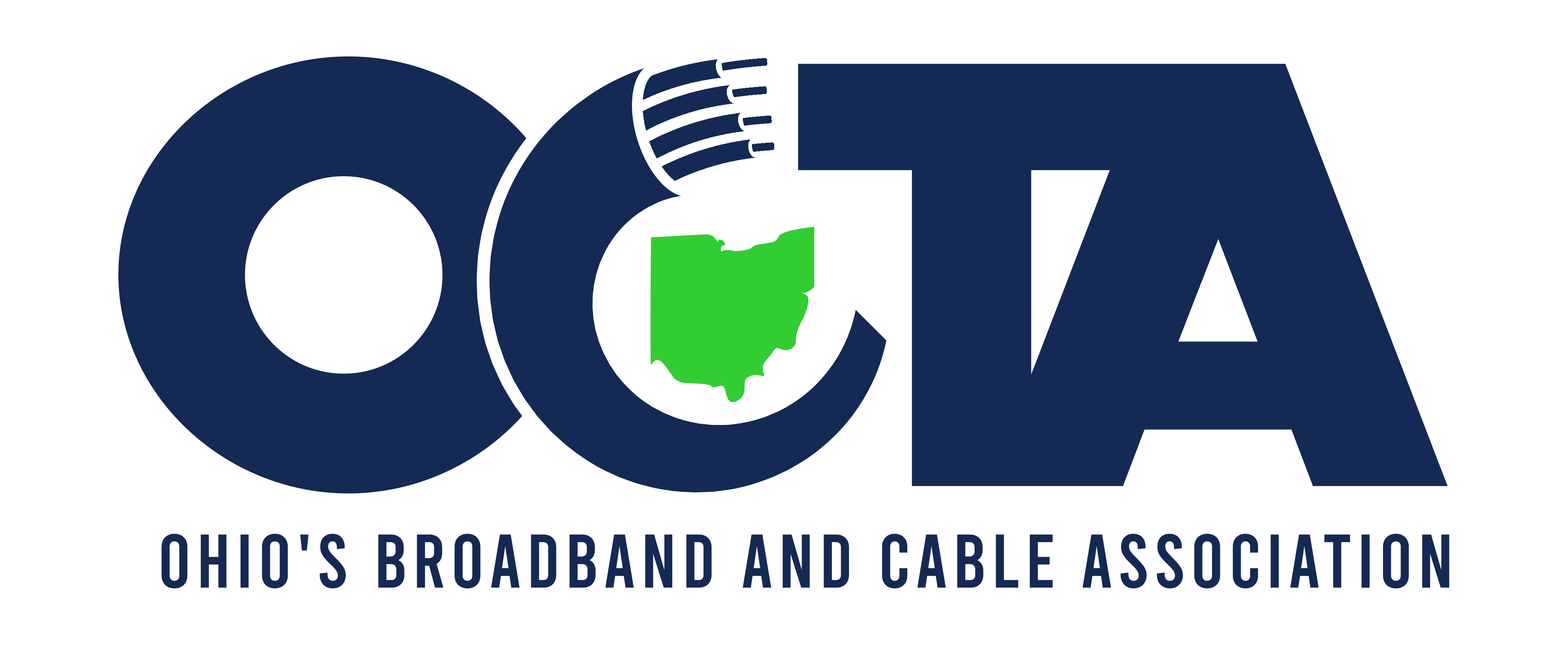Legislation, Issues & Laws
Today's broadband cable industry is at the forefront of telecommunications technology that delivers quality broadband, video, mobile and voice services to our customers.
Our position as a leader in innovation brings with it numerous issues warranting our attention and concern. On behalf of Ohio's broadband cable industry, OCTA monitors a wide variety of public policy issues and participates in policy discussions at the local, state and federal levels.
Ohio Broadband Policy & Programs
- Ohio Broadband Strategy
- Ohio Residential Broadband Expansion Grant Program
- Ohio’s Broadband and 5G Workforce
135th Ohio General Assembly - Monitored Legislation
-
SB 18: Regarding State Agency Data Storage and the Notification Law (Wilson)- Senate Bill 18 would modify the law governing data storage and notifications issued by state agencies. Many state offices are served by OCTA member broadband providers. While this legislation does not currently impact broadband cable operators, OCTA is monitoring to ensure no changes adversely impact members.
-
SB 50- Revise Ohio's 9-1-1 Law (Wilson, K. Smith)- Senate Bill 50 would modernize Ohio's 911 system from its current analog infrastructure to a digital, internet protocol (IP)-based system, also known as Next Generation 911. Across the country, many states are taking similar steps to improve the 911 system's overall success and reliability. Because many OCTA members offer mobile telephone service and voice over IP (VOIP) service to both residential and commercial customers, changes to Ohio's 911 law could directly impact their operations. The laws and regulations governing Ohio's 911 law are complex, and OCTA is monitoring SB 50 to ensure members are protected from any unintended consequences that could come with modernizing the state's 911 system, such as new taxes or fees that solely impact our members, or new regulatory barriers that could harm competition in the marketplace.
-
SB 71: Regarding Data Analysis Transparency Archive(DATA)Act(Gavarone)- Senate Bill 71 would enact the Data Analysis Transparency Archive (DATA) Act to create a new office within the Office of the Secretary of State and to modify the ways in which the boards of elections must retain election data, enter it into the Statewide Voter Registration Database (SWVRD), and make it available to the public. Many state offices and boards of elections offices are served by OCTA member broadband providers. While this legislation does not currently impact broadband cable operators, OCTA is monitoring to ensure no changes adversely impact members.
-
HB 20: Ohio Computer Crimes Act (Swearingen)- House Bill 20 would create several crimes related to unauthorized electronic computer service interference, data tampering and manipulation, computer trespass, data theft, and data disclosure. The legislation also revises existing offenses of criminal mischief and unauthorized use of computer, cable, or telecommunications property. OCTA is monitoring HB 20 to ensure criminal liability remains with the offender and not the broadband service provider over which the impacted data is traveling.
-
HB 41: “The ConsumerUtility Billing Transparency Act" (Skindell)- House Bill 41 would require some utility bills to itemize all costs associated with the service. While this legislation does not currently impact broadband cable operators, OCTA is monitoring to ensure no changes adversely impact members.
Ohio Administrative Code
Ohio Laws
- Ohio Revised Code Section 1332: Fair Competition in Cable Operations
- Ohio Revised Code Section 122.40 – 122.41: Residential Broadband Expansion
- Ohio Revised Code Section 4926.01: Electric Cooperative Pole Attachments
Ohio Judicial Opinions
- Ohio Supreme Court: DirectTV, Inc. v. Levin (2010)
The imposition of a sales tax by the Ohio General Assembly on satellite broadcasting services but not on cable broadcasting services does not violate the Commerce Clause of the United States Constitution, because the tax is based on differences between the nature of those businesses, not the location of their activities, and it does not favor in-state interests at the expense of out-of-state interests.
Ohio Regulatory Agencies & Monitored Rule Changes
For information on federal issues and industry positions, visit NCTA – The Internet and Television Association’s website.

